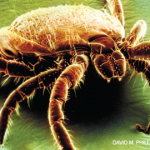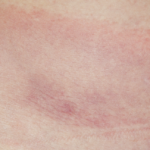NEW YORK (Reuters Health)—In Lyme disease-endemic areas, a C6 peptide enzyme immunoassay (EIA) test may help guide initial management of children with acute arthritis, an observational study suggests.1
“Children with Lyme disease frequently present to the emergency department with an inflamed joint,” Lise Nigrovic, MD, MPH, of Boston Children’s Hospital tells Reuters Health by email. “Although Lyme arthritis is initially treated with oral antibiotics, many children will undergo an invasive procedure such as a joint tap or even wash-out as part of the initial evaluation.”
“We demonstrated that the C6 EIA test, a previously approved first-tier test for Lyme disease, with results available within a few hours, could be used to safely guide initial management for children with inflamed joints to avoid unnecessary invasive procedures for children with Lyme arthritis,” she says.
The authors performed C6 EIA tests on 911 children presenting to a Pedi Lyme Net emergency department from 2015-2019. Lyme arthritis was defined as a positive or equivocal C6 EIA test followed by a positive supplemental immunoblot result. Septic arthritis was defined as a positive synovial fluid culture result or a positive blood culture result with synovial fluid pleocytosis. Other cases were considered inflammatory arthritis.
As reported in Pediatrics, C6 EIA test results indicated that 211 children (23.2%) had Lyme arthritis, 11 (1.2%) had septic arthritis, and 689 (75.6%) had other inflammatory arthritis.
A positive or equivocal C6 EIA result had a sensitivity of 100% and specificity of 94.2% for Lyme arthritis. None of the 250 children with a positive or equivocal C6 EIA result had septic arthritis. However, of those with a positive first-tier Lyme disease test result, 75 underwent arthrocentesis (30%) and 27 had an operative joint washout performed (10.8%).
Eugene Shapiro, MD, of Yale School of Medicine, New Haven, Conn., coauthor of a related editorial, tells Reuters Health by email, “In an area in which Lyme disease is endemic, although a positive C6 ELISA result in a child with arthritis of the knee is suggestive of Lyme disease, it does not rule out the possibility that it is due a different bacterium such as Staphylococcus aureus. Clinical judgement is still critical in deciding how to manage such patients.”
Lyme disease specialist Tania Dempsey, MD, ABIHM, founder of Armonk Integrative Medicine, New York, says, “The C6 EIA test has shown promise over the older ELISA test that is part of the two-tier Lyme testing recommended by the U.S. Centers for Disease Control and Prevention, dating back to 1995. There are serious limitations to the two-tier test, including a nearly 50% false-negative rate.”
“Although this study shows promise … to accurately identify Lyme arthritis with the use of the C6 EIA test, it is not clear what the false negative rate was,” she tells Reuters Health by email. “Their numbers show that they were able to diagnose 23.2% of children with Lyme arthritis and 1.2% with septic arthritis. But 75.6% were identified as having inflammatory arthritis, which means that the diagnosis is unclear. Based on the published false negative rate of this test, we can assume that a fair percentage of those with inflammatory arthritis probably had Lyme arthritis.”
“One key point is that the study design included a confirmatory immunoblot test for C6 EAI positive or equivocal results. This would be equivalent to a two-tier test,” she says. However, “no immunoblot testing was done on any of the C6 EAI- negative results. Since we we know a large number of patients will be missed by this (test), it is discouraging to think of all those patients who might still be suffering with Lyme disease that was undetected with the screening C6 EAI test.”
“There is no question that we need better testing for Lyme disease,” she says. “The C6 EIA has some benefits but is clearly not sufficient.
References
- Nigrovic LE, Bennett JE, Balamuth F, et al. Diagnostic performance of C6 enzyme immunoassay for Lyme arthritis. Pediatrics. 2019 Dec 13. pii: e20190593. [Epub ahead of print]
- Oliveira CR, Shapiro ED. Lyme arthritis and clinical judgment. Pediatrics. 2019 Dec 13. pii: e20191998. [Epub ahead of print]



